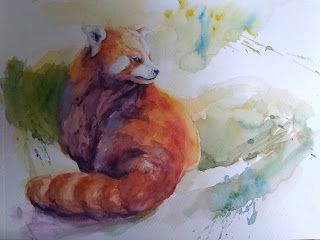Hannah Arendt
German Jewish political theorist (1906-1975).
I just read the preface of Men in Dark Times (1968). It is condense and deep. She mentions that persons throughout the history have one common thing: they hardly knew each other. The realities of the dark times, which she calls the first twentieth century, were covered up by 'efficient talk' and 'double-talk' by official representatives who hid certain facts and justified certain actions, she argues. She introduces the realities by borrowing the poem, "To Posteristy," by Brecht. She develops the idea of talk by tapping into Heidegger's notion of 'mere talk.' She paraphrases his description of human existence and existential condition: the power of 'mere talk' annihilates authenticity of every day life and meaningful sense for the future and all this obfuscation is performed in public realm. Finally she propses her idea on this dark times. She believes the power of ordinary people's resistence, weak light that comes from theri works and lives, not from theories, will shed lights on the spirit of the dark times.
[By double-talk or mere talk in public realm, I think she was mentioning public discourses weaved by power, that legitimates certain knowledge while marginalizing others. A question that arises is how to know the ordinary resistance or weak light illuminating the dark times...]
I just read the preface of Men in Dark Times (1968). It is condense and deep. She mentions that persons throughout the history have one common thing: they hardly knew each other. The realities of the dark times, which she calls the first twentieth century, were covered up by 'efficient talk' and 'double-talk' by official representatives who hid certain facts and justified certain actions, she argues. She introduces the realities by borrowing the poem, "To Posteristy," by Brecht. She develops the idea of talk by tapping into Heidegger's notion of 'mere talk.' She paraphrases his description of human existence and existential condition: the power of 'mere talk' annihilates authenticity of every day life and meaningful sense for the future and all this obfuscation is performed in public realm. Finally she propses her idea on this dark times. She believes the power of ordinary people's resistence, weak light that comes from theri works and lives, not from theories, will shed lights on the spirit of the dark times.
[By double-talk or mere talk in public realm, I think she was mentioning public discourses weaved by power, that legitimates certain knowledge while marginalizing others. A question that arises is how to know the ordinary resistance or weak light illuminating the dark times...]


Comments